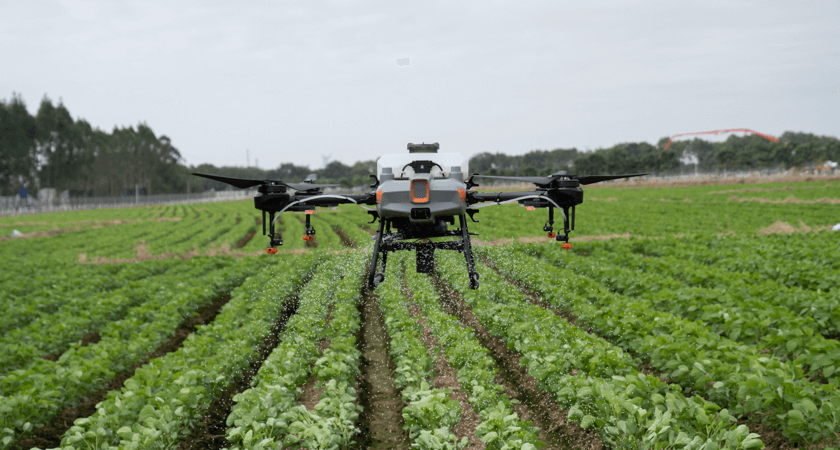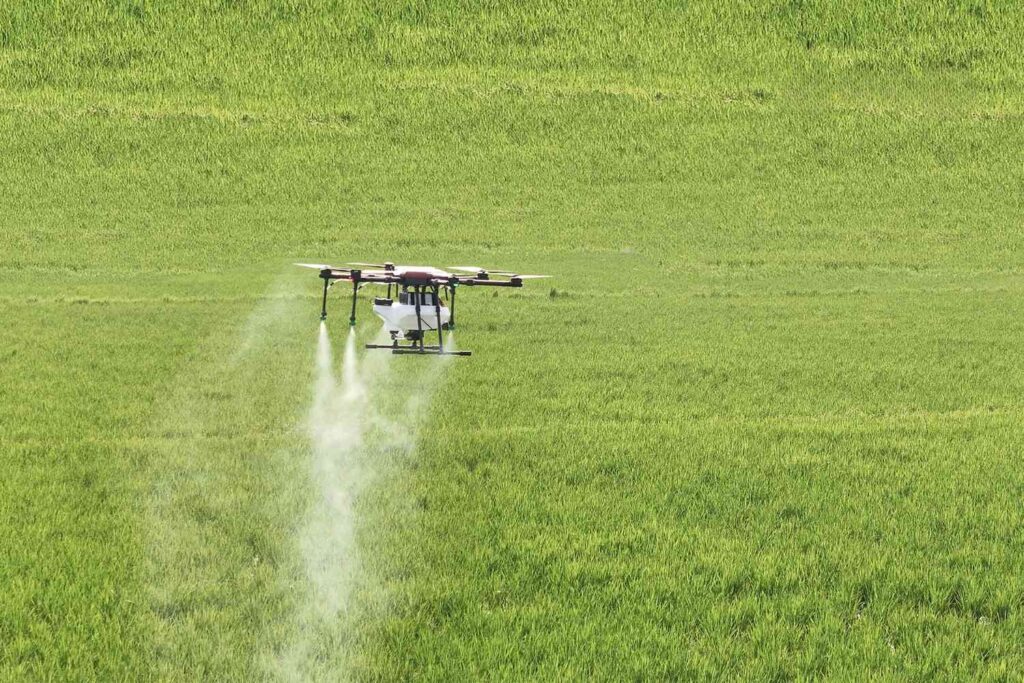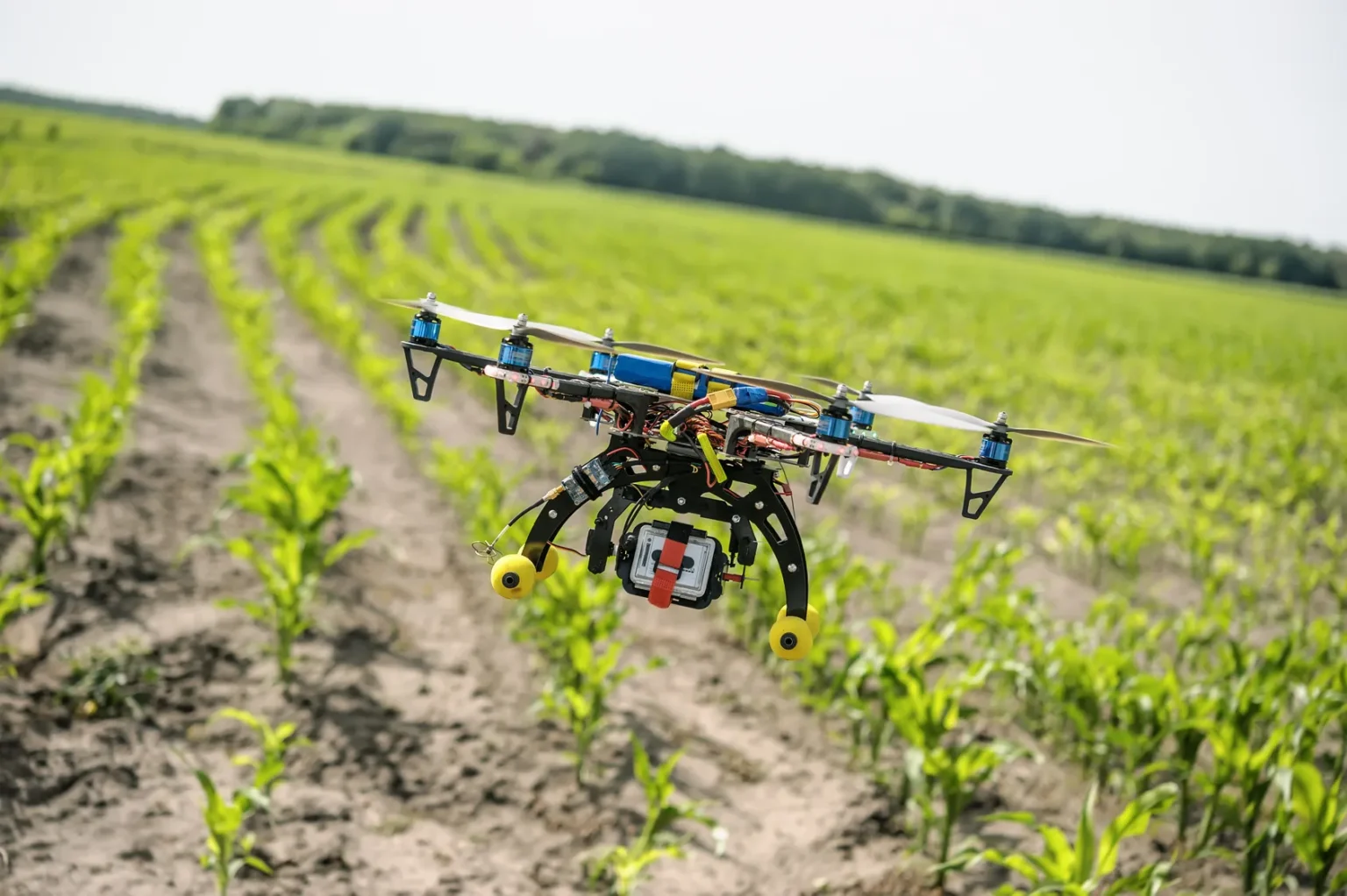Agriculture has always been a vital part of human life, shaping economies, cultures, and communities. While Bahrain may be known more for its trade, finance, and oil industry, the country has been gradually focusing on strengthening its agricultural sector to ensure food security, sustainability, and innovation. One of the most powerful changes driving this transformation is drone technology. Drones are no longer just futuristic gadgets; they have become indispensable tools in modern farming. From monitoring crops and soil to spraying fertilizers and predicting yields, drones are enabling farmers in Bahrain to achieve levels of efficiency and productivity that were once unimaginable.
The Rising Importance of Agriculture in Bahrain
Despite its desert climate and limited arable land, Bahrain has never ignored the importance of agriculture. The sector not only contributes to food supply but also provides employment and cultural significance. With the rising global population, climate challenges, and growing demand for sustainable farming, Bahrain has recognized that innovation is the key to transforming agriculture. Drone technology has become one of the most promising solutions for making farming smarter, faster, and more sustainable in the region.
Why Drones Are Becoming Essential in Farming
Farming traditionally relied on manual labor and conventional machinery, which consumed time, water, and resources. Drones, however, provide an aerial perspective that is highly detailed, accurate, and cost-efficient. Farmers can capture real-time data about soil conditions, plant health, irrigation needs, and pest infestations. This allows them to take timely decisions, reduce waste, and maximize output. In a place like Bahrain, where water resources are scarce, this precision makes an extraordinary difference.

Aerial Mapping for Smarter Farming
One of the most important roles of drones is aerial mapping. By flying over large fields, drones can capture high-resolution images and create 3D maps of agricultural land. These maps help farmers understand soil variation, moisture levels, and crop distribution. Instead of guessing where to water or apply fertilizers, farmers can use these maps to target specific areas. This reduces costs, saves water, and ensures crops receive exactly what they need. For Bahrain, where every drop of water counts, aerial mapping is a revolutionary advantage.
Drone-Assisted Irrigation Management
Water scarcity is one of the biggest challenges for Bahraini farmers. Drones equipped with thermal cameras can identify dry areas within a farm, ensuring irrigation systems target the right places. This prevents overwatering or underwatering, leading to healthier crops and improved soil quality. By integrating drones with smart irrigation systems, farmers are achieving sustainable water usage, helping Bahrain balance agriculture with its limited natural resources.
Crop Health Monitoring Made Easier
One of the most powerful features of agricultural drones is their ability to monitor crop health. Using multispectral imaging, drones can detect plant stress, disease, or nutrient deficiencies before the human eye can spot them. This early detection allows farmers to act quickly, applying fertilizers or treatments only where needed. For Bahrain, where maximizing agricultural land is crucial, maintaining crop health through drone technology ensures higher yields and better quality produce.
Precision Spraying for Fertilizers and Pesticides
Traditionally, spraying fertilizers and pesticides was labor-intensive and imprecise. Drones now make this process faster and more accurate. By spraying only the required amount in targeted areas, drones minimize chemical usage, reduce costs, and protect the environment. Farmers in Bahrain are increasingly adopting drone-based spraying to ensure crops are protected from pests without harming soil and water quality.
Increasing Yields Through Predictive Analysis
Drones are not only about observation; they are about prediction. By analyzing crop data, drones help farmers forecast harvest yields and plan for the future. This predictive power allows better supply chain management, reduces waste, and gives farmers financial confidence. For Bahrain, this means stronger food security and less dependency on imports.
Supporting Greenhouse and Vertical Farming
Bahrain has been exploring modern farming models such as greenhouses and vertical farms due to its limited land availability. Drones play a significant role in these environments by monitoring plant growth, detecting humidity imbalances, and ensuring optimal conditions. Integrating drones into such high-tech farms helps Bahrain push the boundaries of agricultural innovation.
The Role of AI and Data Integration
When drones are combined with artificial intelligence, their power multiplies. AI can process drone-captured data, offering farmers clear insights into crop growth patterns, soil fertility, and weather adaptability. In Bahrain, where climate unpredictability can challenge farming cycles, AI-powered drone insights make agriculture more resilient and reliable.
Empowering Farmers With Knowledge and Efficiency
Drone technology is not just about machines; it is about empowering farmers. Farmers in Bahrain, especially younger generations, are learning to operate drones and interpret the data they provide. This gives them control over farming decisions and reduces dependency on guesswork. The technology also makes farming attractive to the youth, combining tradition with innovation.
Government and Policy Support in Bahrain
Bahrain’s government has shown a growing interest in agricultural innovation. By promoting smart farming, supporting startups, and introducing sustainable policies, the country is creating an environment where drones can thrive. Subsidies, training programs, and technology partnerships are helping farmers access drones and adopt them in their daily operations. This policy-driven support ensures that Bahrain remains competitive in modern agriculture.
Environmental Benefits of Drone Farming
One of the overlooked benefits of drone technology is environmental protection. By reducing excessive use of fertilizers and pesticides, drones contribute to healthier soil and cleaner water systems. They also cut down fuel consumption by replacing heavy machinery for certain tasks. For Bahrain, a nation aiming to balance growth with environmental responsibility, drones offer a perfect blend of efficiency and sustainability.
Overcoming Challenges in Drone Adoption
While drones bring numerous benefits, their adoption also faces challenges. High initial costs, lack of technical knowledge, and the need for proper regulations can slow down progress. However, as technology becomes more affordable and training programs expand, these barriers are gradually being broken. In Bahrain, collaborative efforts between the government, farmers, and private companies are ensuring that challenges are transformed into opportunities.

Inspiring Case Studies from Bahrain
Several farms in Bahrain have already started experimenting with drones, reporting positive results. From increased yield to reduced water consumption, the success stories are inspiring other farmers to follow. These case studies highlight how even small-scale farms can benefit from drone adoption, proving that technology is not limited to large agricultural businesses.
Future of Drone Farming in Bahrain
The future of agriculture in Bahrain looks promising with drones leading the way. As technology continues to evolve, drones will become smarter, more autonomous, and more accessible. Farmers will have access to real-time dashboards, automated crop analysis, and AI-driven predictions. Bahrain’s agricultural future will be defined by efficiency, sustainability, and innovation, with drones playing a central role in ensuring food security for generations to come.
Social and Economic Impact
Drone technology is not just improving farming; it is also creating new jobs and business opportunities. Young entrepreneurs in Bahrain are establishing drone service companies, offering aerial mapping, spraying, and data analysis to farmers. This contributes to economic growth and diversifies Bahrain’s job market. Socially, drone adoption is fostering collaboration between farmers, researchers, and policymakers, creating a community-driven approach to agriculture.
How Drones Are Changing Global Perceptions of Bahrain
By embracing drone technology, Bahrain is positioning itself as a forward-looking nation that values both tradition and innovation. While the country may not have vast fields like other nations, its smart use of drones showcases how innovation can overcome limitations. This enhances Bahrain’s reputation globally as a hub of technological progress and agricultural creativity.
Education and Training for Future Generations
For drone farming to succeed long-term, education is vital. Bahraini schools and universities are beginning to introduce courses on agricultural technology, including drone operations and data analytics. By equipping the next generation with these skills, Bahrain is ensuring that its youth can continue to push the boundaries of agricultural progress.
Final Thoughts
Agriculture is more than just growing food; it is about sustaining life, communities, and economies. In Bahrain, drone technology is breathing new life into farming, making it smarter, greener, and more sustainable. From saving water and protecting crops to empowering farmers and inspiring innovation, drones are at the heart of Bahrain’s agricultural revolution.
The story of Bahrain’s embrace of drone technology is not just about machines in the sky. It is about vision, resilience, and the determination to transform challenges into opportunities. By adopting drones, Bahrain is ensuring that agriculture remains strong, secure, and sustainable, while setting an example for other nations to follow. The future of farming in Bahrain is not only promising it is flying high.
Do follow Gulf Magazine on Instagram.
Also Read – Bahrain’s Bold Move in AI-Driven Financial Transformation



